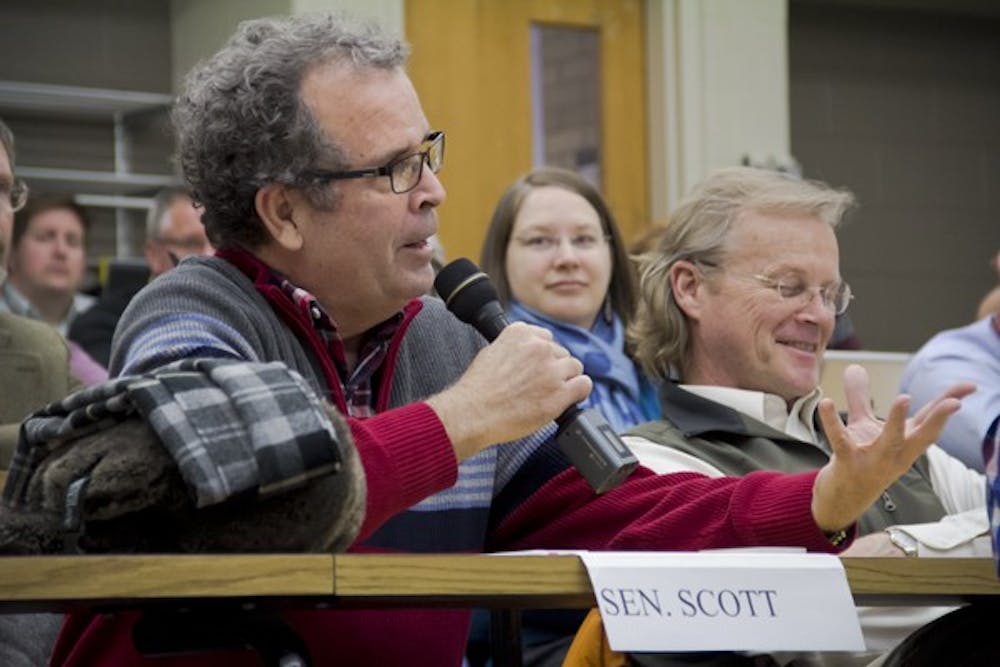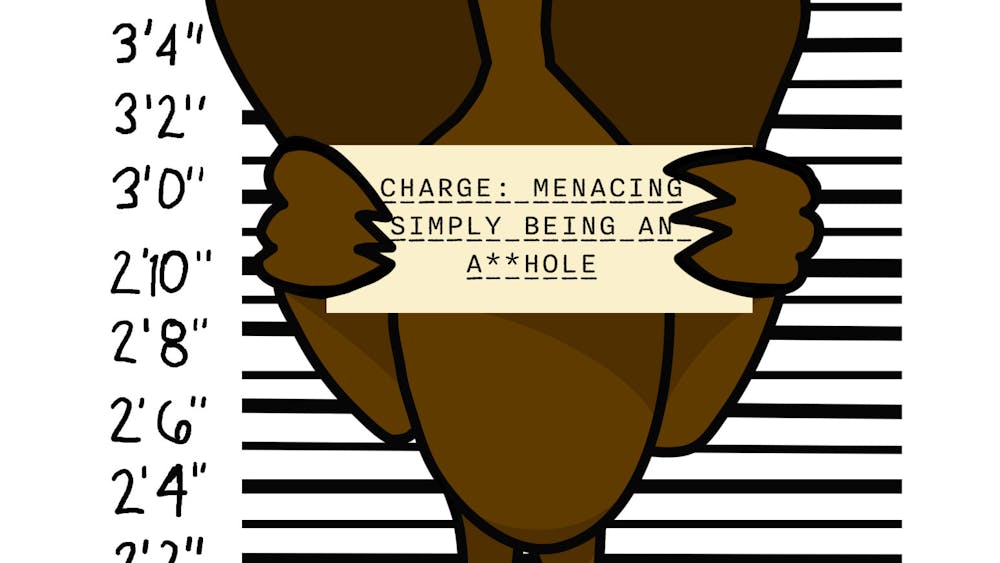Academic Senate approves additional graduation cords; Senators question precedent moving forward

Academic Senate approved a resolution Tuesday to allow Leader Advancement Scholars, as well as Golden Key International Honors Society students, to wear special recognition cords at commencement ceremonies.
The two resolutions were approved almost unanimously, but the vote was preceded by tense debate about where to draw the line on future recognition proposals.
Some senators felt the push for recognition at commencement went beyond the scope of academic pursuits, with some teetering toward student organizations and extracurricular activities. The discussion took place nearly a month after A-Senators approved recognition cords for military veterans.
“There was a period of time years ago where you could wear the various laude cords like magna cum and summa cum laude and that was it,” said Sen. Mary Senter, a professor of sociology, anthropology and social work. “It didn’t matter what your argument was. There’s been a lapsing of that.”
Senter said she supported the resolution, but questioned the precedence it could set for inspiring all sorts of organizations to argue for a designation at graduation ceremonies.
“I’m not opposed to this inherently, but I think we should realize that what we’re doing is basically allowing any set of students, or any set of clubs, or any set of programs who can make a credible argument that what students are doing is either academically sound or servicing a purpose — and that’s almost everything — otherwise we wouldn’t be here,” she said.
Senter questioned the ramifications of giving power to student organizations, clubs and students to designate their involvements with medals and cords.
“We’re allowing them to designate that at graduation,” she said. “I think that’s fine as long as it’s not terribly outlandish.”
Sen. Misty Bennett, a management professor, said some exclusionary criteria should be established for what cords and medals are allowed at graduation ceremonies.
Others disagreed with the concerns, including Sen. Jim Scott, a professor of business information systems, who said faculty have no substantial right to prevent a student from wearing decorations on their cap and gown.
"I mean, if someone showed up with a swastika, I’m going to stop them," Scott said. "Short of that, there’s not a really good mechanism. I support the recognition of students who have done good things at the university at the commencement.”
Sen. Joseph Finck agreed with Scott, adding that all honors society members should be recognized instead of individually allowing various honors society organizations to have their own medals and cords – a kind of blanket solution to the problem.
Appealing for students in the program, Sen. Travis White, a representative from Student Government Association and a Leader Advancement Scholar, asked the governing body to consider the student accomplishments, and not the implication of future recognition proposals.
“It’s amazing the group that we have and what we actually put into our community,” White said. “They go above and beyond the protocol, not just to the community but in our academics. They’re passionate in both of them. To wear medals and cords would mean a lot to us.”




